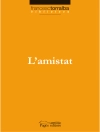This book continues the discussion from the first four volumes on the challenges that organizations face in order to implement sustainability, ethics, and effective corporate governance, all of which are important elements of “standing out” from other companies. Examining the background of the New European Consensus on development with the new guiding motto ‘Our World, Our Dignity, Our Future, ’ the authors explore how this new legislation on sustainability issues around the world is forcing companies to deal directly with sustainability issues.
The 2030 Agenda for Sustainable Development (2030 Agenda), adopted by the United Nations in September 2015, is the international community’s response to global challenges and trends in connection with sustainable development. With the Sustainable Development Goals (SDGs) at its core, the 2030 Agenda is a transformative political framework designed to eradicate poverty and achieve sustainable development globally. It balances the economic, social, and environmental dimensions of sustainable development, including the key issues of governance and peaceful and inclusive societies, and recognizes the essential interlinkages between its goals and targets, i.e., that they must be implemented as a whole and not selectively. The respective chapters in this volume raise a number of questions regarding corporate social responsibility, ethics, and corporate governance in the face of new technology and new approaches to climate change and sustainability reporting.
表中的内容
ESG in The Global Journey: A Biometric Analysis.- Different view of weather anomalies on BIST100.- Role of Empathy and Innovative Behavior of Bankers in providing Credit to Entrepreneurs.- Possibility of Creating A Process-Based Organizational Structure In The Public Sector.- Sustainable Governance, Development Disparities, Regional Government: A Case from South Sulawesi Government, Indonesia.- Insights on Climate Change and Sustainability Reporting: Türkiye Case.- Critical Factors Influencing Accounting Misstatements: Evidence from Malaysia.- The European Union and Türkiye’ s renewable resources versus fossil energy for the sustainable future.- The relationship between corporate governance mechanisms and firm’s performance pre and post-Malaysian Corporate Code Governance 2017: The moderating effect of women directors on board.- The Kosovo Women’s Role and Position In Leadership Strategy.- The relationship between corporate governance and firm value and performance: The evidence from Istanbul Stock Exchange of Turkiye.- The Impact of Financial Development and Innovation on Green Growth: An Empirical Investigation on Emerging Countries.- Does Social Entrepreneurship Favor Inclusion among People? A Conceptual Analysis in Emerging and Developing Economies.- Index.
关于作者
Kıymet Tunca Çalıyurt graduated from Beşiktaş Atatürk Lisesi (1986) in İstanbul. Her bachelor’s degree is from the Business Administration Department, Marmara University (1990) in Istanbul; her Master’s (1994) and Ph.D. (2002) degrees are from the Accounting and Finance Programme at the Social Graduate School, Marmara University; her postdoctoral study is from London Metropolitan University (2004).
Prof Çalıyurt worked as an auditor at Horwath Auditing Company, a manager at Mc Donald’s, and finance staff at Singapore Airlines. After vast experience in the private sector, she has started working in academia. Her research interests are accounting, auditing, fraud examination, social responsibility, corporate governance, finance, business ethics, and sustainability, particularly in auditing, aviation management, NGOs, and the fast sector.
Prof Çalıyurt was a visiting researcher at John Molson School of Business in 2001 summer (International Centre for Aviation Management), Massachusetts University Amherst Business School in the 2014 summer, the 2018 summer, 2024 summer (Accounting and Information System), University of National World and Economy in the 2019 summer (Faculty of Accounting). She founded the International Group on Governance, Fraud, Ethics and Social Responsibility (IGon GFE&SR) and the International Women and Business Group(IWBG) in 2009; both groups organized annual conferences and published international book series.
Prof Çalıyurt performs as
book series editor in Springer indexed in Scopus, titled “Accounting, Finance, Sustainability, Governance & Fraud: Theory and Application”[1], and in Routledge titled “Women and Sustainable Business”[2].
Attends as an invited speaker at the Cambridge Economic Crime Symposium and a workshop organizer on the role of external auditors in fraud prevention.
Editorial board member in the Journal of Financial Crime (Web of Science – ESCI), International Journal of Law and Management(Web of Science – ESCI), Journal of Money Laundering Control (Web of Science – ESCI), International Journal of Climate Change Strategies and Management (Web of Science – SSCI).
She is a founding partner of Herme Consulting, located in Trakya University Technopark. The company trains and organizes company fraud examinations, sustainability, auditing, accountability, and academic publishing.












